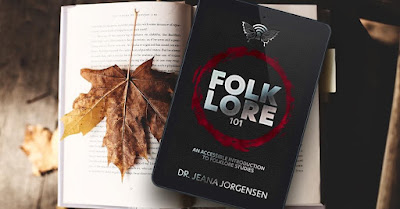When's the last time you got to pick a folklorist's brain?
Did you know memes count as folklore?
Or that folklorists assign numbers to fairy tales to keep track of them all?
The field of folklore studies is over two centuries old, and it's full of amazing insights about human behavior, creativity, and community. Folklore studies is as interdisciplinary as it gets, squished somewhere between anthropology and linguistics and religious studies and comparative literature and more. It's all about the informal human interactions, the million tiny acts and stories and beliefs and arts that function as social glue even if they seem beneath notice. Do traditional holiday foods have a deeper meaning? Yep. Same with folk music, ballads, proverbs, jokes, urban legends, body art, and a ton more genres covered in this book.
Is the whole book as easy to read and irreverent as this description? Yep. This fun, accessible guide to the academic study of folklore packs in a college class's worth of material, from basic concepts and major folklore genres to special topics based on identity, fancy theories, and more.
If you've always wanted to take a folklore class, or you're a writer or artist using folklore in your work, or you're just generally interested in the topic, this is the book for you!
"This wonderfully insightful book introduces the reader to folklore with warmth and good humor. Students and others interested in folklore will love it!" - Libby Tucker, Distinguished Service Professor of English, Binghamton University and author of Haunted Halls: Ghostlore of American College Campuses
"Dr. Jeana Jorgensen knows her stuff and, just as importantly, knows how to communicate it. Folklore 101 is a treasure trove of knowledge, the kind it would take years of college courses to accumulate yourself. If you're curious about academic folklore, this clear, engaging book is where you want to start." – Dr. Sara Cleto, co-founder of The Carterhaugh School of Folklore and the Fantastic





